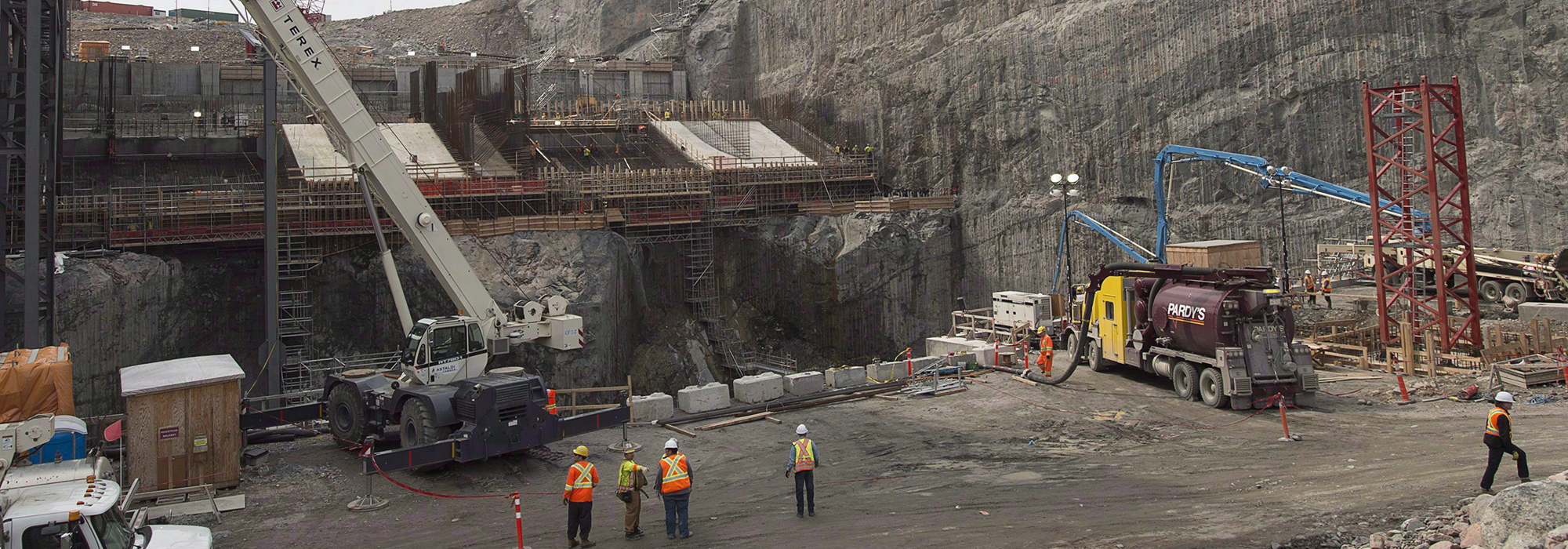
As 14-year-old Saydee Jones walked away from Muskrat Falls, the site of the Lower Churchill Hydroelectric Project in Labrador and most recently the focus of widespread protests, she summed up the evident contradictions underpinning the project: “We have to tell people; this is not green energy!”
Saydee’s comment captures the connections and gaps between community organizing, civil disobedience, resource project planning, review processes, traditional connections to the land, and Indigenous identity/being.
These interconnections, so much like webs, are familiar to us. For six years, Indigenous and non-Indigenous women in and around Happy Valley-Goose Bay, Labrador, have been working together as part of the Feminist Northern Network (FemNorthNet), often voicing concerns with Muskrat Falls and its impacts on their lives.
On October 24, after a week of escalating protests, road blockades, arrests, a high-profile hunger strike, an occupation of the provincial legislative building in St. John’s, and solidarity protests in other cities across the country, the Newfoundland and Labrador provincial government agreed to the demands made by the hunger strikers, after 12 hours of negotiations with the region’s Indigenous leaders.
The project has been suspended pending an independent assessment of the multibillion dollar hydroelectric project. As well, an independent committee with scientific experts will be set up to look at reducing the impact of methylmercury contamination.
But it didn’t have to be like this. In 2011, the Joint Review Panel for the Lower Churchill project recommended that Nalcor Energy, the Crown Corporation that is building the project, address key concerns over environmental contamination and local social impacts. Neither the company or the provincial government acted on the recommendations.
Although the provincial government and Nalcor were forced to act on concerns about methylmercury by the most recent protests, there is a wide range of social impacts that they must address.
Research from across the North shows how northern women are disproportionally affected by large-scale resource extraction projects. These impacts include lack of access to housing and health services, the increased incidence of gender-based and family violence, and loss of access to the land, which negatively affects food security as well as emotional and cultural well-being. Even access to the promised jobs is undermined by the lack of of job training, gender inequality in the workplace and a lack of child care.
What are the better ways forward from the mess we’re in now? If we truly mean to be green, environmentally responsive and socially responsible, what can we do more of to succeed?
It is astounding that environmental destruction and negative social impacts are being justified in the name of green energy.
First, it should be required that all projects implement a gender-based analysis (GBA), not just for social impacts but environmental ones too. As the Auditor General of Canada noted in 2015, a key barrier to integrating GBA into policy, legislative, and program initiatives is “the absence of mandatory requirements.”
Second, the process of reviewing and monitoring projects should make individual and community capacity-building a central goal. Other established assessment processes, such as the Mackenzie Valley Review Board’s Socio-Economic Impact Assessment Guidelines, can provide guidance on this front.
Third, project agreements should be subject to renegotiation. Sunk costs should not outweigh the public good. Why should Labradorians incur the devastating range of detrimental social impacts associated with this project, including further displacement of Indigenous people, especially in a time of supposed reconciliation?
It is astounding that environmental destruction and negative social impacts are being justified in the name of green energy. It is particularly reprehensible considering that there are much better alternatives. For example, we know conserving energy has a more beneficial effect than increasing its production.
Investment in community-owned, alternative energy, especially for rural and isolated communities, could address social, environmental, and economic challenges, rather than creating them. If we want to be truly green, we must take the opportunity now to reassess the approach and address the full range of social impacts.
It is time for better ways forward. It’s time to make Muskrat right.
Photo: Andrew Vaughan/The Canadian Press
Do you have something to say about the article you just read? Be part of the Policy Options discussion, and send in your own submission. Here is a link on how to do it. | Souhaitez-vous réagir à cet article ? Joignez-vous aux débats d’Options politiques et soumettez-nous votre texte en suivant ces directives.







